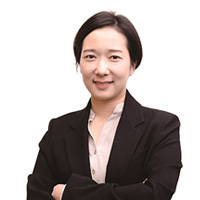[Herald Interview] Alternatives to apartments are possible in Korea: curator Chung Dah-young
By Park YunaPublished : July 22, 2024 - 20:23

Apartments constitute the most typical residential form across South Korea's cities, accounting for more than half of all housing in the country. Most people rarely have a chance to think critically about what options other than apartments might be possible.
The newly opened exhibition “Performative Home: Architecture for Alternative Living” at the National Museum of Modern and Contemporary Art, Korea in Gwacheon, Gyeonggi Province, gets visitors to think outside the box about their living environments.
"I have wanted to touch on the issue, wondering how it is that we can't think of other alternatives. This question has lingered in my mind for a long time, as I also live in an apartment," Chung Dah-young, curator at the MMCA, told The Korea Herald on Friday.
The exhibition unfolds around six themes: “The Home as an Architectural Manifesto,” “Reimagining Family Homes,” “The Home as a Social Ground,” “The Home as a Panorama,” “Small Homes, Renovated Homes” and “The Home as Temporary Dwelling.”
More than 58 houses by 30 architectural offices built after 2000 are on view.
“It was not easy to deal with houses before 2000, since there are not many houses that remain intact in their original forms for more than 20 years,” Chung said.

The house named Basecamp Mountain by architect Kim Kwang-soo located in Eunpyeong-gu, northwestern Seoul, is home to a married couple who asked the architect to design a house as a place to converse with friends with a small bedroom in a neighborhood close to Bukhansan National Park.
Inspired by the couple’s cheerful and carefree approach to life, the architect built a house with space for a cafe within the given budget of 25 million won ($18,007.25) Chung said the aim of showing Basecamp Mountain in the exhibition is to convey to people that they can live "lightly" instead of being caught up with the real estate value of their homes.
“I figure those who have a mind to create and live in a house for themselves are not reluctant to share their space with others,” Chung said, adding that apartment complexes, particularly those in Seoul, while technically open to others, are increasingly becoming exclusive spaces for residents while growing larger and more luxurious.
The exhibition introduces houses under 100 pyeong (330 square meters) in size, which would be more achievable for more people, and excludes larger, luxury houses.
Cat-tagonal House in Yongin, Gyeonggi Province presents a housing type for humans and companion animals at a time when a growing number of people are keeping pets.

The house, designed with a pentagonal floor place, is home to two people and two cats named Mango and Tango. Designed by architects Park Ji-hyeon and Cho Seong-hak, the house aims to accommodate the cats as family members.
The owners of the house provided details about the distinct personalities and spatial needs of the cats and the house, accordingly, features a small yard and windows at cat-eye level along the paths frequented by Mango and Tango.
“The exhibition does not intend to argue that apartments are ‘bad’ housing. It intends to show that there are alternatives for those seeking other types of housing in Korea," Chung said.
The exhibition runs through Feb. 2, 2025.
Chung, who has curated architecture exhibitions at the state-run museum since 2011, will direct the curation of the Korean Pavilion exhibition under the theme, “The House of Trees,” at next year's Venice Architecture Biennale.





![[Herald Interview] How Gopizza got big in India](http://res.heraldm.com/phpwas/restmb_idxmake.php?idx=644&simg=/content/image/2024/11/20/20241120050057_0.jpg&u=20241120164556)


![[KH Explains] Dissecting Hyundai Motor's lobbying in US](http://res.heraldm.com/phpwas/restmb_idxmake.php?idx=644&simg=/content/image/2024/11/20/20241120050034_0.jpg&u=)
![[Kim Seong-kon] Farewell to the vanishing John Wayne era](http://res.heraldm.com/phpwas/restmb_idxmake.php?idx=644&simg=/content/image/2024/11/19/20241119050096_0.jpg&u=)
![[Graphic News] 70% of S. Koreans believe couples can live together without tying the knot: survey](http://res.heraldm.com/phpwas/restmb_idxmake.php?idx=644&simg=/content/image/2024/11/19/20241119050098_0.gif&u=)







![[Today’s K-pop] Blackpink’s Jennie, Lisa invited to Coachella as solo acts](http://res.heraldm.com/phpwas/restmb_idxmake.php?idx=642&simg=/content/image/2024/11/21/20241121050099_0.jpg&u=20241121172748)